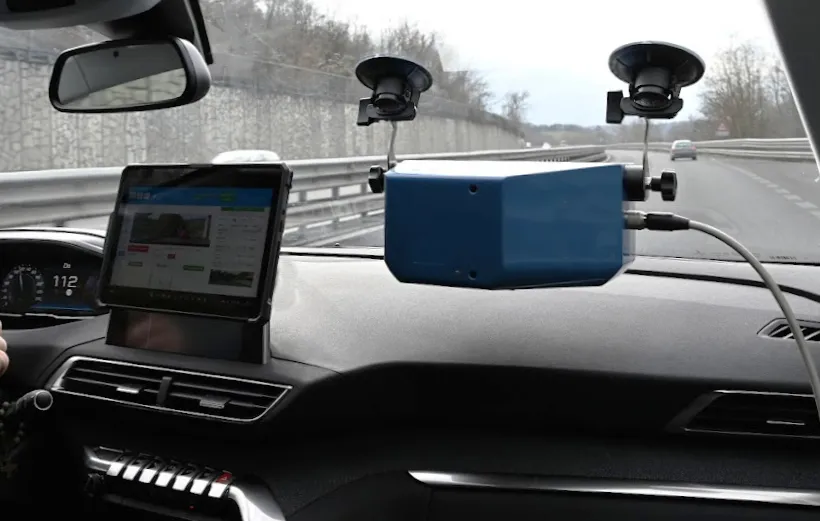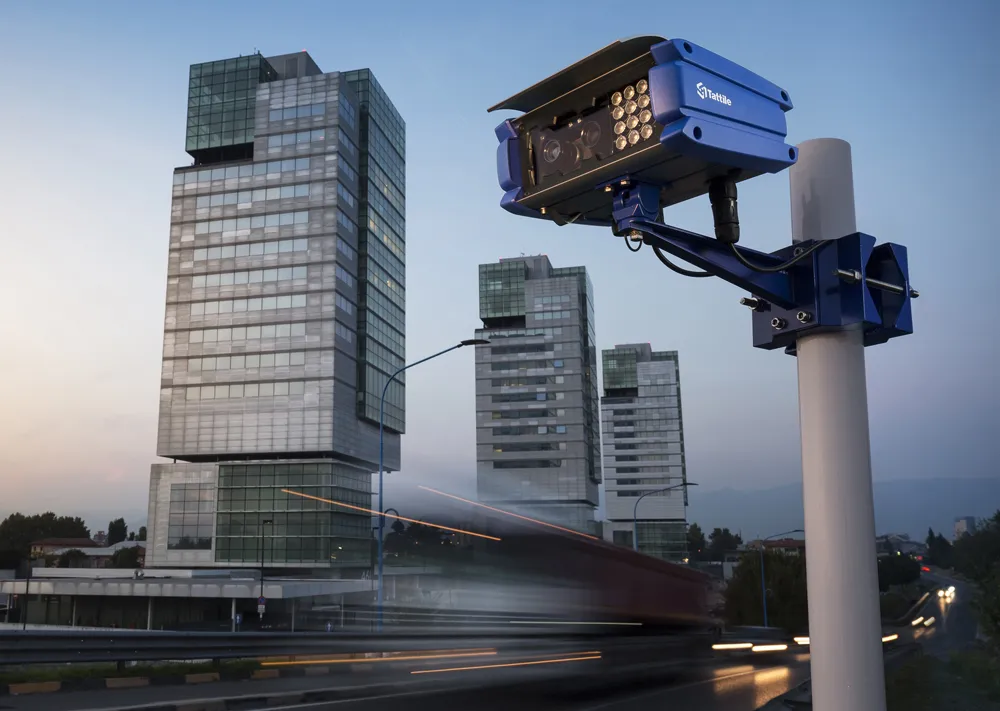Enforcement systems provider Vitronic has won two significant fixed and mobile enforcement contracts in Dubai and Iraqi Kurdistan. Dubai Police has recently awarded the company a further contract for fixed traffic enforcement systems, including PoliScan speed enforcement, combined red light and speed enforcement systems, and violation processing software. The stationary PoliScan speed systems monitor all vehicles in the surveillance zone equally, regardless of their position on the road. The systems in
March 1, 2013
Read time: 2 mins
Enforcement systems provider 147 Vitronic has won two significant fixed and mobile enforcement contracts in Dubai and Iraqi Kurdistan.
Dubai Police has recently awarded the company a further contract for fixed traffic enforcement systems, including PoliScan speed enforcement, combined red light and speed enforcement systems, and violation processing software.
The stationary PoliScan speed systems monitor all vehicles in the surveillance zone equally, regardless of their position on the road. The systems in Dubai have been equipped with automatic evidence data transfer to the violation processing centre using 3G.
The combined speed and red light enforcement devices are equipped with two eight megapixel high-resolution col-our cameras and a light detection and ranging laser (LIDAR) detection unit.
During the red light enforcement phase, a video camera captures two rear images and a video sequence of the incident in addition to two frontal images produced by the laser system.
The Kurdish Ministry of the Interior, meanwhile, which is endeavouring to reduce the increasing number of road traffic accidents and fatalities on the region’s roads, is to deploy 300 mobile PoliScan speed enforcement systems.
The fully automatic mobile systems use LIDAR to detect speeding vehicles over several lanes. They are suitable for unattended use and can be mounted on tripods, in the front or rear of vehicles, or in stationary housings.
Dubai Police has recently awarded the company a further contract for fixed traffic enforcement systems, including PoliScan speed enforcement, combined red light and speed enforcement systems, and violation processing software.
The stationary PoliScan speed systems monitor all vehicles in the surveillance zone equally, regardless of their position on the road. The systems in Dubai have been equipped with automatic evidence data transfer to the violation processing centre using 3G.
The combined speed and red light enforcement devices are equipped with two eight megapixel high-resolution col-our cameras and a light detection and ranging laser (LIDAR) detection unit.
During the red light enforcement phase, a video camera captures two rear images and a video sequence of the incident in addition to two frontal images produced by the laser system.
The Kurdish Ministry of the Interior, meanwhile, which is endeavouring to reduce the increasing number of road traffic accidents and fatalities on the region’s roads, is to deploy 300 mobile PoliScan speed enforcement systems.
The fully automatic mobile systems use LIDAR to detect speeding vehicles over several lanes. They are suitable for unattended use and can be mounted on tripods, in the front or rear of vehicles, or in stationary housings.









